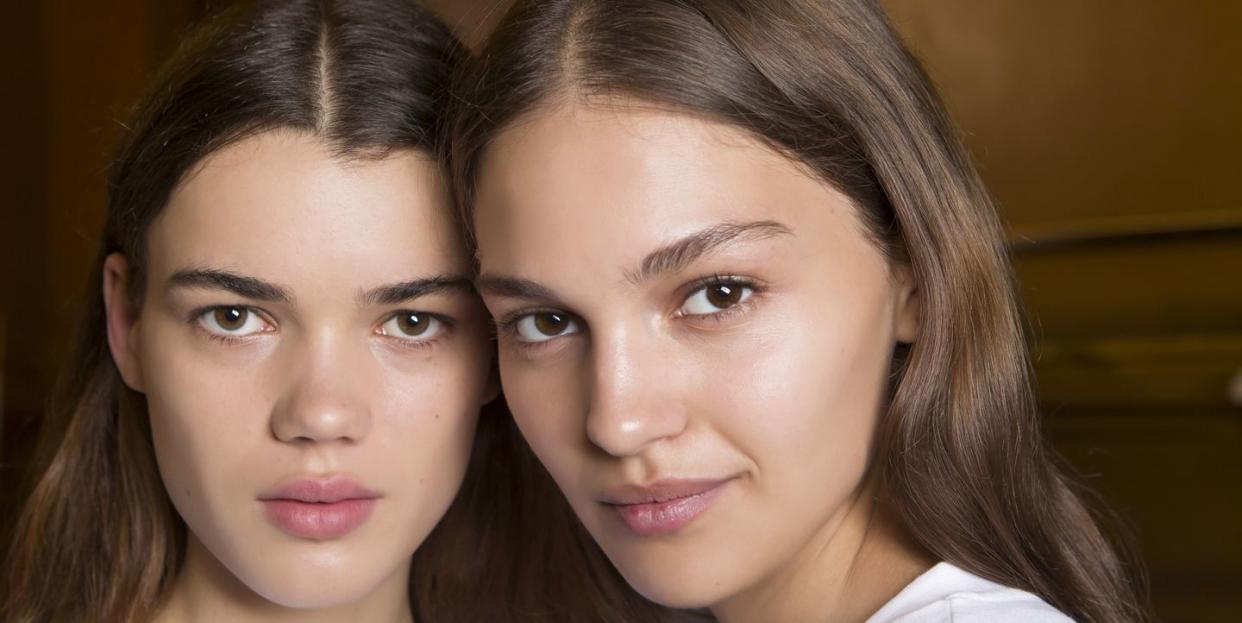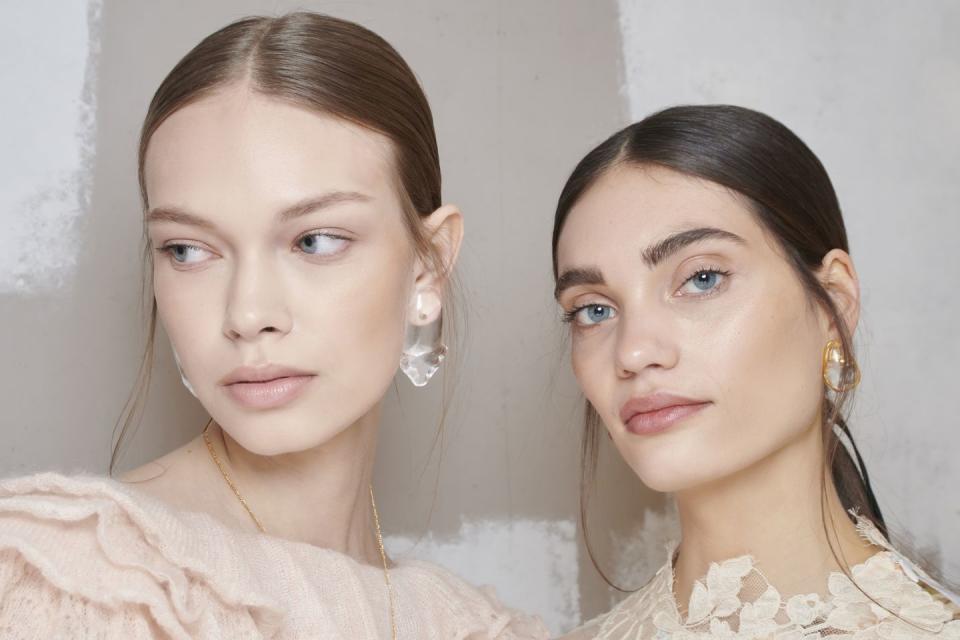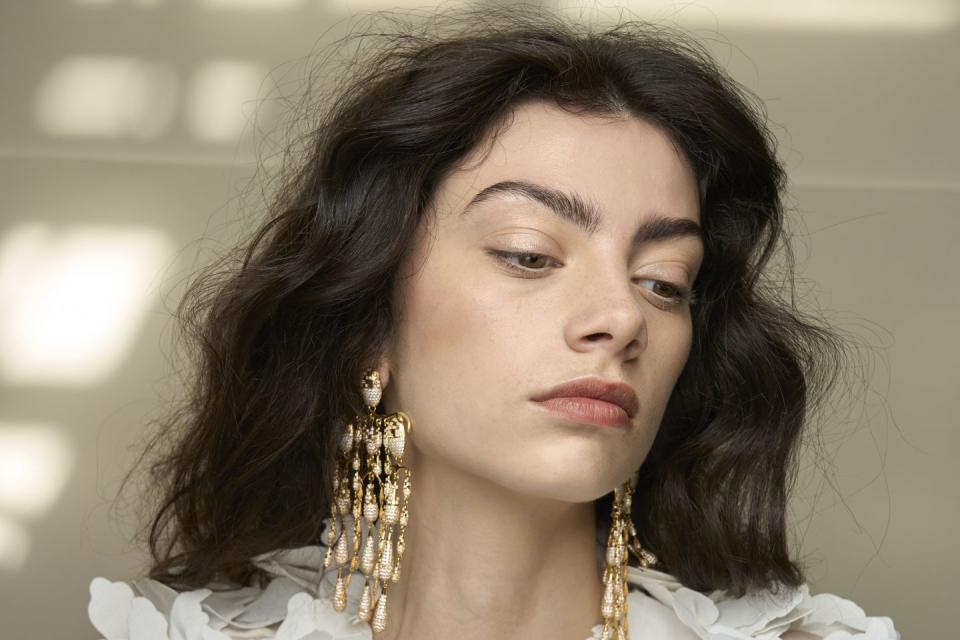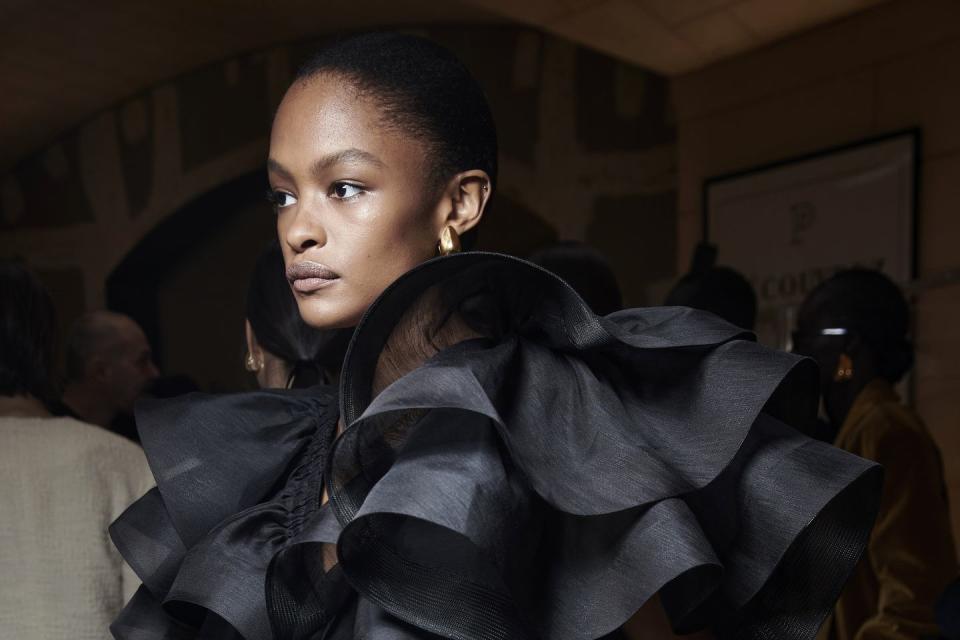Is This The End Of 'Clean Beauty'?

There was a point in the mid 2010s when you couldn’t scroll Instagram, buy a cookbook or choose your lunch without being served an onslaught of ‘clean’ options. It wasn’t long before we were being called to question whether the products in our bathrooms were as dirty as our kitchens.
Fast forward nearly a decade and with the awareness of the dangers of restrictive diets pushing clean eating off the menu, could its clean beauty cousin go the same way? Amidst a wider climate of mistrust with both green and clean washing flourishing, it could certainly be on rocky ground.
Clean beauty’s identity crisis
'Clean beauty started as a term for products developed without synthetics deemed "toxic",' Lisa Payne, Head of Beauty and trend forecasting agency Stylus, explains. 'This introduced a sense of chemophobia (fear of chemicals) that dominated in beauty for a number of years. Growing in demand and popularity, clean beauty then became an advocate for natural and organic ingredients, as well as sustainability,' Payne adds.
As the concept has grown and developed, clean beauty has come to mean different things to different people. Subsequently, there is now widespread confusion about what it actually represents. 'The term clean in beauty is very subjective and there aren’t any central bodies that offer an industry-wide definition,' Laura Rudoe, CEO and Founder of Evolve Organic Beauty, notes.

Research commissioned by Vitabiotics Perfectil found 69% of women have bought a health or beauty product without understanding the label. Hardly surprising, considering the EU found that 53% of green claims on products and services are vague, misleading, or unfounded. As a result, clean beauty is being replaced by what trend forecasters call ‘Accredited Beauty’. 'Beauty brands are bringing expertise, efficacy and tech-led explorations to prove their capabilities and win trust,' Olivia Houghton, Beauty Lead and Foresight Analyst at strategic foresight consultancy, The Future Laboratory, comments.
FIND OUT MORE ON ELLE COLLECTIVE
For brands like Evolve Organic Beauty, this means certifying their products via an independent organisation. 'I believe the closest thing to an industry wide standard of clean is the COSMOS Natural Certification and we choose to certify over 90% of our products to COSMOS standards,' Rudoe says. Other certifying bodies like The Skin Cancer Foundation Seal of Recommendation (for sun cream) Leaping Bunny (for cruelty-free products) and B Corp status (for sustainable operations) are also increasingly being used by brands to tout their credentials.
Is a backlash brewing?
Beyond the issue with the term clean beauty, the concept itself is also being reconsidered.
'Product longevity is back in the spotlight as natural ingredients reveal themselves to be less shelf-stable than products made with synthetics,' Houghton explains. Traditional preservatives often eschewed by brands in the clean space can impact both the stability of products once they reach beauty shopper’s hands and how long they last once opened. A growing concern, considering waste is front of mind from both a cost and climate perspective.

The view of once so-called cancelled ingredients is also changing in some corners of the beauty industry. 'Narratives are changing around sulphates and other ingredients that consumers have shunned based on the view that they are toxic or harmful for people and the planet.' Houghton says. For example, straight-talking ingredient-led brand The Ordinary reclaimed sulphates, the once vilified ingredient, when they launched their Sulphate 4% Cleanser for Hair and Body. Featuring a 'mild concentration' of SLES-2 (a sulphate), the multi-taking product is designed to gently remove dirt and oil.
On TikTok, a growing number of cosmetic scientists are sharing science-backed information and myth-busting around certain ingredients and products. For example, Dr Michelle Wong, who goes by the name Lab Muffin Beauty, creates videos calling out heavily criticised ingredients in the clean beauty space such as sulphates, silicones and chemical UV filters used in sun cream. In these videos she addresses the claims against these ingredients from a cosmetic scientist perspective and shares her take on whether they are as dangerous as some claim.
A new approach
Following criticism and confusion, many brands have chosen to stay clear of the term clean beauty altogether. 'Now brands are embracing ‘cleanical’, an approach centred on transparency and science-meets-nature formulas,' Payne states.
Fussy, the refillable natural deodorant brand, are a good example of this. They use plastic-free packaging and plant-based ingredients but their formula itself is science-backed. Transparency and avoiding cleanwashing at all costs is at the heart of what they do. 'If the label is a word soup of mind-bending jargon that demands an A-level in chemistry to decipher, it’s probably not clean,' Matt Kennedy, Founder of Fussy, explains. 'We believe in using ingredients that are good for your skin or positively contribute to the function of the product whilst not harming the planet. And a label you can actually understand,' he adds.

Other brands like Dieux are also preaching transparency over everything else. The skincare company shares the cost of formulas, packaging, labour, payment processing and shipping of every product clearly on their website as well as clinically vetting each claim they make.
Across the board, clean beauty’s relevance is shrinking. 'As a concept and level of formula this is something the customer expects but the words clean beauty are not something that we find customers are actively seeking out when shopping with us,' Suze College, Head of Category & New Brands at Space NK, confirms. Moving forward, it seems many elements of clean beauty are here to stay but the phrase itself might be going down the same path as clean eating.
ELLE Collective is a new community of fashion, beauty and culture lovers. For access to exclusive content, events, inspiring advice from our Editors and industry experts, as well the opportunity to meet designers, thought-leaders and stylists, become a member today HERE.
You Might Also Like


